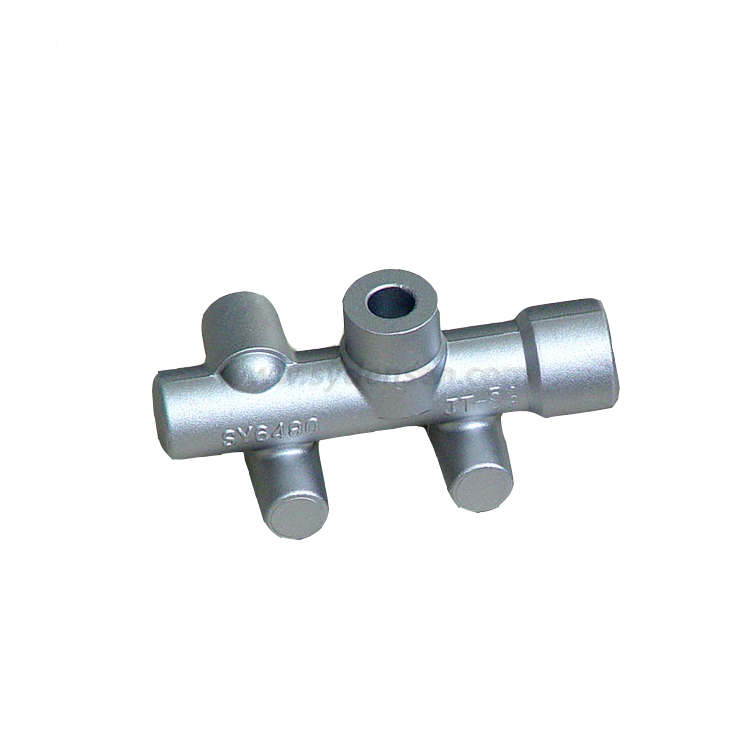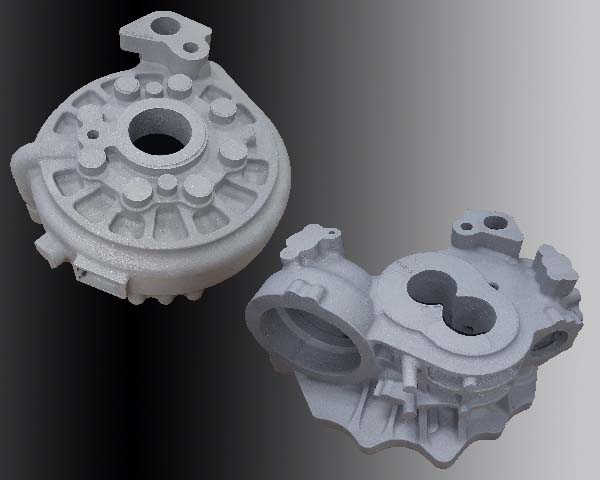The Function of Aluminum Foundries in Progressing Lightweight Production Solutions
Aluminum foundries significantly add to the advancement of lightweight production options. Their innovative casting innovations generate high-strength, light-weight parts important for markets like automotive and aerospace. This innovation not only improves item efficiency however additionally advertises sustainability through using recycled products. As these shops adapt to emerging practices and technologies, they lead the way for future developments in producing effectiveness and ecological duty. What lies in advance in this transformative journey?
The Advantages of Lightweight Products in Production
As sectors increasingly seek performance and sustainability, the adoption of light-weight materials in production has actually become a crucial method - Aluminum Casting Company. These products, especially light weight aluminum and compounds, provide various benefits that improve production processes and product efficiency. Mostly, their reduced weight contributes to lower power usage during transport and operation, resulting in substantial expense savings
Furthermore, light-weight products help with the layout of even more complex geometries, permitting greater innovation in item advancement. This adaptability often causes enhanced capability and performance, catering to the advancing demands of modern-day consumers.
In addition, using lightweight materials can enhance the longevity of products because of their resistance to rust and exhaustion. This longevity not just minimizes upkeep expenses but likewise sustains sustainability efforts, as longer-lasting items add to much less waste. To sum up, the benefits of lightweight materials are essential in driving efficiency, technology, and ecological responsibility in manufacturing.
Technologies in Light Weight Aluminum Spreading Technologies
Current innovations in light weight aluminum spreading modern technologies are reinventing the production landscape, especially in the manufacturing of lightweight components. Developments such as high-pressure die casting and vacuum cleaner die casting have substantially enhanced the accuracy and surface area coating of light weight aluminum components - Precision aluminum casting. These methods permit for the production of complicated geometries while reducing product waste and improving mechanical residential properties

Additionally, the execution of real-time monitoring systems assures high quality control throughout the casting process, bring about more constant item results. Collectively, these developments not just enhance the efficiency of light weight aluminum parts but also support the industry's change in the direction of even more lasting manufacturing methods.
Applications of Aluminum Parts in Numerous Industries
While light weight aluminum components have actually long been made use of in numerous sectors, their adaptability and light-weight residential or commercial properties continue to drive cutting-edge applications across fields such as automotive, aerospace, and building and construction. In the automotive sector, aluminum is significantly made use of for engine blocks, wheels, and body panels, improving fuel efficiency and performance. Aerospace suppliers take advantage of aluminum for aircraft frameworks and parts, maximizing its strength-to-weight ratio why not check here to improve fuel economic climate and payload capacity.
In the construction market, aluminum is favored for window frames, roof, and structural components, providing durability and resistance to rust while reducing overall structure weight. Furthermore, the electric and electronics sectors benefit from aluminum's conductivity and light-weight nature, using it in wiring, units, and warm sinks. These varied applications highlight the critical role of light weight aluminum components, which not just satisfy industry demands yet likewise add to innovations in product layout and performance across numerous fields.
Sustainability and Power Efficiency in Light Weight Aluminum Foundries
The light weight aluminum factory market plays an essential duty in advertising sustainability and power effectiveness, specifically as demand for light-weight elements remains to grow throughout numerous fields. Factories are increasingly embracing eco-friendly practices, such as using recycled light weight aluminum, which considerably reduces power usage and greenhouse gas exhausts compared to main light weight aluminum manufacturing.
Innovations in casting technologies enhance power performance by enhancing the melting procedures and decreasing waste. Strategies like die spreading and financial investment casting permit specific material usage, lessening excess and scrap.
Additionally, several foundries are investing in renewable resource resources to power procedures, additionally reducing their carbon impact. Executing energy monitoring systems allows shops to boost and keep an eye on power use, guaranteeing they operate at peak effectiveness.

Future Trends in Lightweight Manufacturing Solutions
Exactly how will arising technologies form the future of light-weight production services? Innovations such as innovative materials, automation, and additive manufacturing are readied to redefine production procedures. The assimilation of wise manufacturing modern technologies, consisting of the Web of Points (IoT) and artificial knowledge (AI), will certainly allow real-time surveillance and optimization, enhancing efficiency and decreasing waste.

As sustainability continues to be a critical problem, light-weight services will increasingly concentrate on recycling and reusing important source materials, straightening with round economic situation principles. This advancement in light-weight manufacturing will certainly not only enhance product performance but likewise add to ecological objectives, ensuring that the industry remains competitive in a swiftly altering market landscape.
Often Asked Concerns
Just How Do Light Weight Aluminum Foundries Make Sure High Quality Control in Production?
Light weight aluminum foundries guarantee quality assurance in production via strenuous screening, standard treatments, and constant monitoring - Precision aluminum casting. They implement sophisticated technologies and skilled personnel to preserve uniformity, lower issues, and satisfy sector standards throughout the production process
What Are the Main Tests Dealt With by Light Weight Aluminum Foundries?
Aluminum factories encounter challenges such as fluctuating basic material expenses, maintaining production effectiveness, ensuring constant quality, adjusting to technological innovations, and meeting ecological laws, all of which impact their overall functional effectiveness and competitiveness in the market.
How Does Aluminum Recycling Effect Foundry Workflow?
Light weight aluminum recycling considerably boosts foundry operations by reducing raw material expenses, decreasing energy intake, and lowering environmental impact. This lasting technique enables factories to boost efficiency while fulfilling raising need for light-weight, high-performance light weight aluminum items.
What Abilities Are Required for Employees in Light Weight Aluminum Foundries?
Employees in light weight aluminum shops need abilities in metallurgy, machining, quality assurance, and safety and security techniques. Efficiency in operating machinery, comprehending alloy homes, and problem-solving are also important for effective production and keeping high safety and security criteria.
Just How Do Light Weight Aluminum Foundries Deal With Waste Monitoring?
Light weight aluminum foundries handle waste via reusing scrap metal, utilizing effective waste segregation methods, and sticking to ecological laws. They apply lasting methods to lessen land fill payments, making certain that unsafe products are thrown away sensibly.
Aluminum shops greatly contribute to the development of lightweight manufacturing options. Current improvements in light weight aluminum casting innovations are revolutionizing the production landscape, especially in the production of light-weight elements. While aluminum parts have long been used in numerous industries, their adaptability and light-weight homes proceed to drive cutting-edge applications throughout industries such as automotive, aerospace, and construction. Additionally, the electrical and electronic devices industries benefit from aluminum's conductivity and lightweight nature, using it in electrical wiring, rooms, and warmth sinks. The aluminum shop industry plays my review here an important duty in promoting sustainability and power performance, particularly as need for light-weight elements proceeds to grow throughout numerous fields.